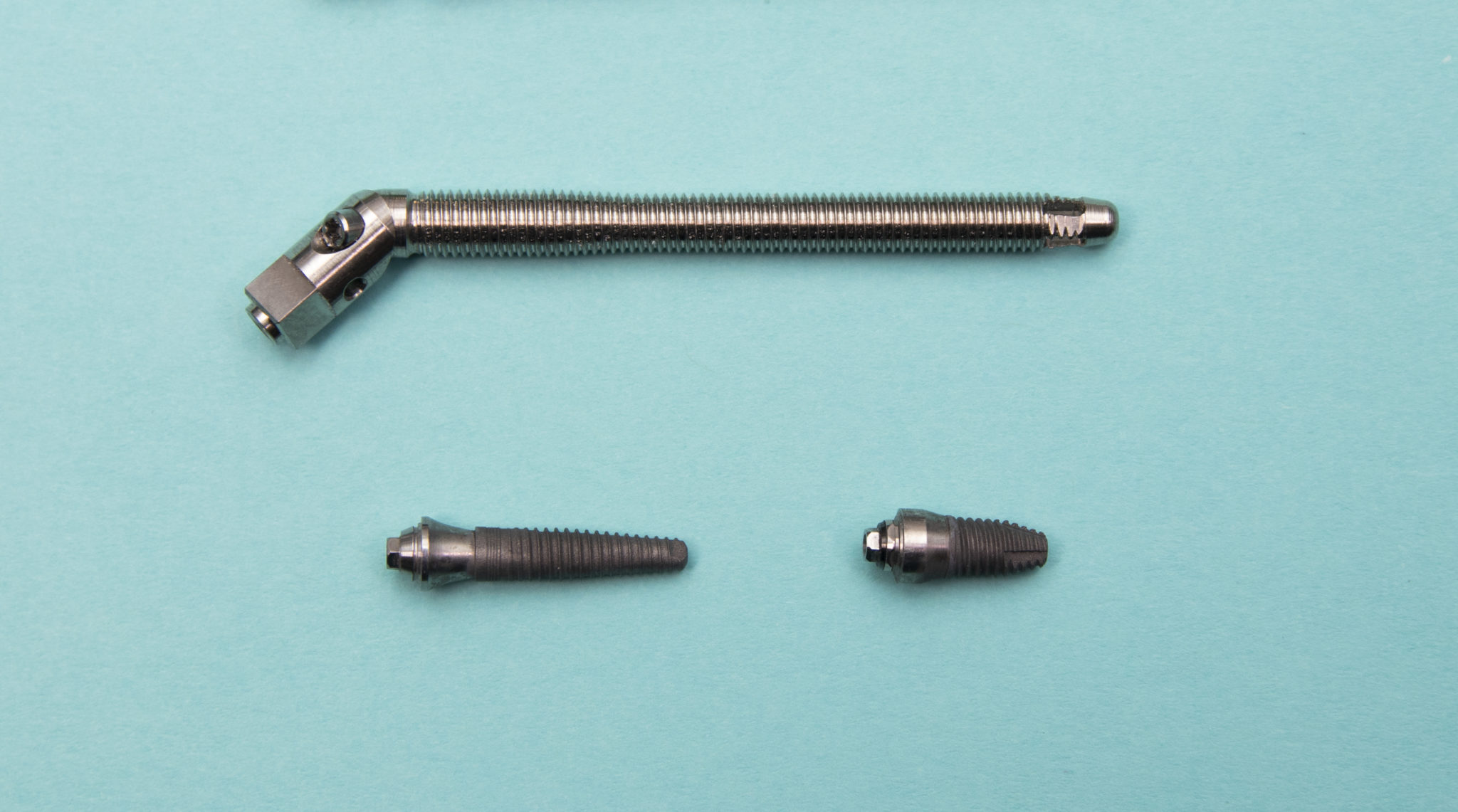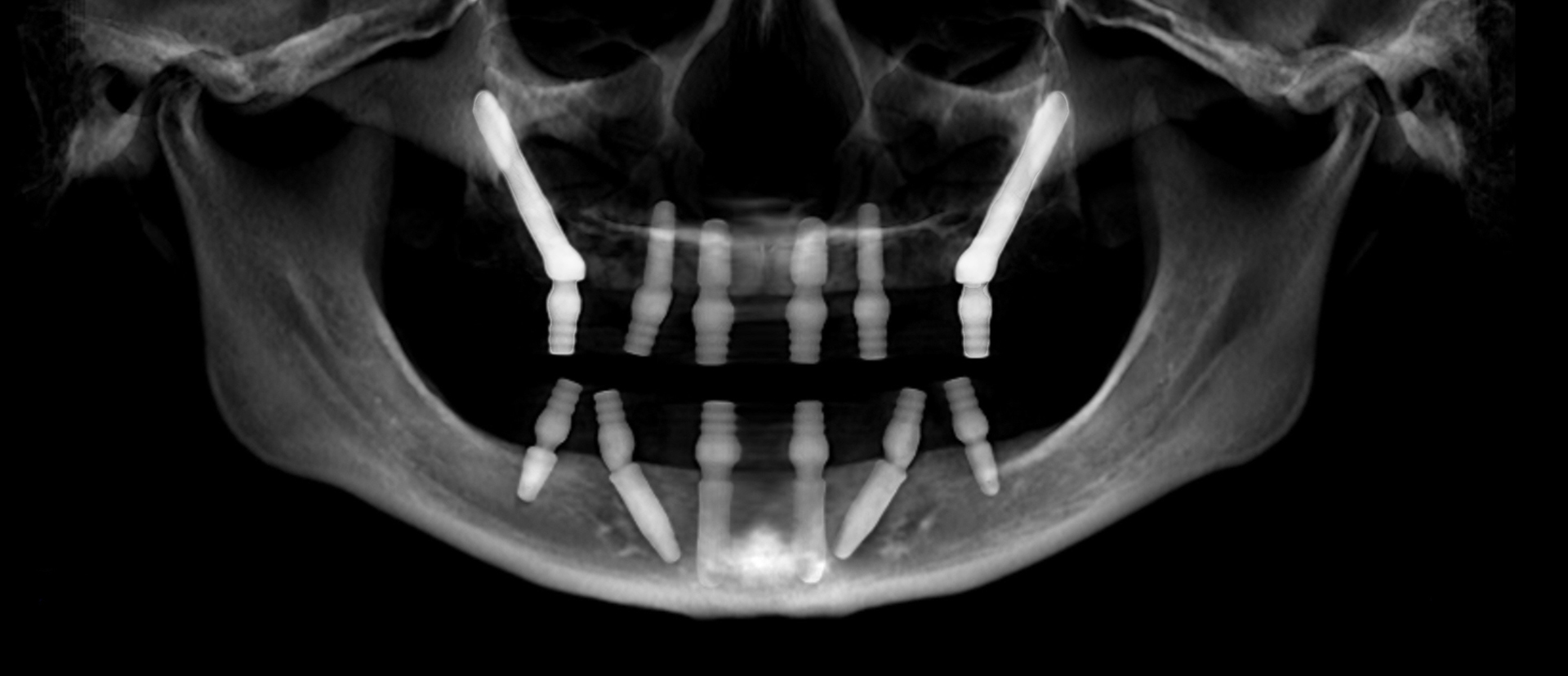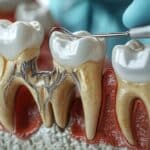Yes, people with severe bone loss are eligible to receive dental implants. In many cases, this can be done without lengthy bone grafting procedures. A qualified oral surgeon takes many factors into consideration before recommending a dental implant solution. Some of these factors include the number of teeth that need to be replaced, the cause of the patient’s bone loss, and how much bone loss has occurred and in what region of the jaw.
Many people suffer from a specific type of bone loss occurring under the gum line. This is often due to periodontal disease. Those who suffer from this type of bone loss are all too familiar with the serious effects it has on their health and quality of life. Those who suffer from more severe bone loss often have oral health issues as well, adding to the list of medical problems. Pain or discomfort while eating can cause patients to suffer from malnutrition, worsening their overall health.
When someone has issues with their teeth, doctors often consider recommending dental implants. Patients with severe bone loss in the jaw don’t have enough bone for traditional implants to remain securely embedded. These patients are often told they are ineligible for implants. Fortunately, there are still techniques available that make implants possible, even with a lack of bone in the jaw. One such option involves the use of zygomatic implants, which can help patients who suffer from significant bone loss restore their quality of life to normal.
The Development, Structure, and Use of Zygomatic Implants
Zygomatic implants are dental implants that are placed in a separate region of the patient’s bone structure. Whereas the bone loss might be too much to take the conventional approach of implanting them in the bone directly underneath the gum line, zygomatic implants simply place the implants in a different location.
For those who are eligible, this is a fixed prosthesis that can be put in place to help patients who suffer from bone loss. Patients who previously wanted dental implants might have heard that they can use a series of bone grafts to restore the bulk of their missing bone structure, allowing the implants to be placed after this series of additional operations has completed. Unfortunately, this often requires multiple procedures that can increase the likelihood of side effects and complications. By placing implants in the zygoma, patients are given an alternative option to the series of procedures required to complete surgical bone grafting.
Functional Benefits of Using Zygomatic Implants
There are many benefits from having a zygomatic implant placed. There is a lack of compression of the soft tissue in this region of the face, meaning that it will be much more comfortable for the patient than bone grafting. This is because the implants do not lean on the soft tissue for structural support, removing any compressive factor that might exist with other options. Furthermore, the structural support system will not move when someone speaks. This allows people to speak more comfortably and confidently, leading to an overall improved self-esteem.
With a shorter procedure completed with fewer visits, this also means less time spent in the office and fewer days missed from work. There have been studies completed showing that zygomatic implants appear to overall have a similar level of clinical performance compared to traditional implants. A faster alternative for the placement of implants mean a quicker return to an overall normal quality of life.
Surgical Benefits of Placing Implants in the Zygoma

Zygomatic implants have been carefully refined over the past few decades to enhance and improve their function both during surgery and afterward. These implants are designed to anchor into the zygoma region of the face, providing an effective option for treating individuals who have been diagnosed with bone loss which might have prevented many people from receiving traditional dental implants. Zygomatic implants have an unthreaded implant body, which is engineered to work well with the soft tissue in this region.
There are several benefits of these zygomatic implants for surgical procedures and recovery. First, these implants have a high degree of primary stability. This is important for their function. Next, these implants interact well with the body’s soft tissue, reducing the chance of post-operative complications or discomfort. Finally, these implants have a pair of angulations, which help with the surgical approach. All of these benefits are critical for both the medical professionals and the patients and demonstrate superiority over the traditional series of bone grafts.
The Treatment of Choice to Improve Quality of Life
As more research has been done regarding the use of these zygomatic dental implants, they have quickly become the gold standard of treatment for those who have suffered from bone loss previously thought to prevent the introduction of traditional dental implants. Without this novel dental implant option, countless patients would need to wait months for their implants, undergoing a series of invasive and unpleasant bone grafting procedures to help increase the bone volume in their face so that conventional dental implants can be placed.
Now, with the option of zygomatic implants, patients can avoid these painful grafts. This means much shorter treatment times along with improved surgical outcomes, function, and aesthetics. As a result, zygomatic implants offer a way for patients to improve their quality of life. These implants offer patients the same benefits of traditional dental implants and can be treated by the patient in this manner. After the procedure has been finished, patients are no longer orally handicapped. These implants can treat and prevent a lot of the social, functional, and psychological problems that come from maxillary resorption. In a sense, zygomatic treatment options restore someone’s quality of life to normal. As a result, countless patients have already benefitted from this treatment option.









